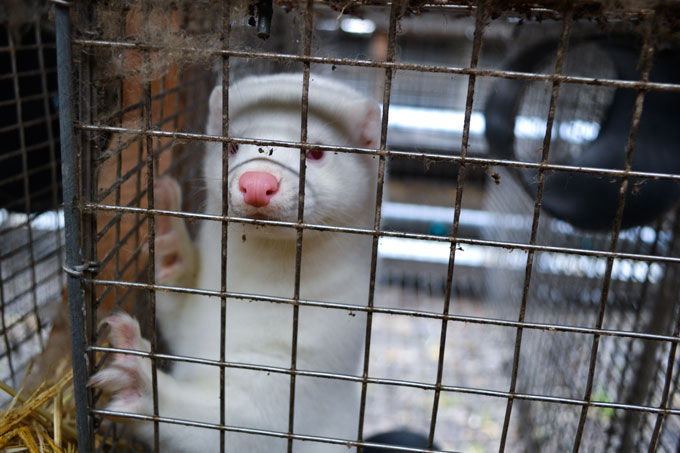Dr Stephen Scoffham argues for a new, more holistic and humane approach to animal farming if we are to avoid future cross contamination disasters.
Sometimes what seems like a relatively minor news item masks a much bigger issue. The recent decision by the Danish government to cull its entire mink population (up to seventeen million animals) is just such an event. The reason for this drastic action is the emergence of a new strain of coronavirus among farmed mink which could pose a threat to human health. The irony is that farm workers appear to have infected the mink, thus creating the problem in the first place.
Denmark is the world’s top producer of mink fur and mink outnumber Danes by around three to one. The animals are often kept confined in small unhealthy cages where they can only take a few paces backwards and forwards at a time. Many people were completely unaware of this industry and the new health scare has caused alarm. Meanwhile, in Denmark, there has been a political outcry as mass graves filled with slaughtered animals have started to appear in the countryside.
There have been many other instances in last few decades when large numbers of animals have been culled in an attempt to halt the spread of disease. In Britain, for example, the army was mobilised to kill over a million farm animals in the 2001 foot and mouth outbreak. More recently marksmen have been employed to shoot badgers in many parts of England because they are suspected of infecting cattle with TB. Although the science is disputed, over 150,000 badgers have been killed since 2013 and the cull continues unabated.
Whether it is chickens, civets, bats or pangolins, animals are often blamed for spreading disease. But is culling them the answer? The veteran Indian campaigner and ecologist, Vandana Shiva, believes not. She argues that slaughtering animals makes us think of them as enemies and is motivated by an unrealistic desire for security and safety. The problem she contends, is not the occurrence of disease and infection in animals, but practices that make them vulnerable to it.
The Covid-19 pandemic has done much to expose weaknesses in our social, economic and political systems. It also reminds us of the dangers of intensive farming. For years campaigners have been protesting about appalling conditions on battery farms and about the inhumane treatment of pigs, sheep, cows and other animals. The risks to human health have now been exposed. As health expert Matthew Baylis points out, keeping large numbers of animals in close quarters creates the conditions in which viruses can multiply and easily spread to people.
What is happening in Denmark is part of a chain of events which emphasises how safe farming involves recognising the link between human and animal health. Furthermore, it suggests that, rather than declaring war on animals when disease breaks out, we should pay greater attention to maintaining their immunity and resilience. No group of living creatures will ever be completely disease free. Working with, rather than against, the forces of nature offers the best hope for the future.
Dr Stephen Scoffham is a Visiting Reader in Sustainability and Education and was President of the Geographical Association (2018-19).
 Expert comment
Expert comment Jeanette Earl
Jeanette Earl 1958
1958


